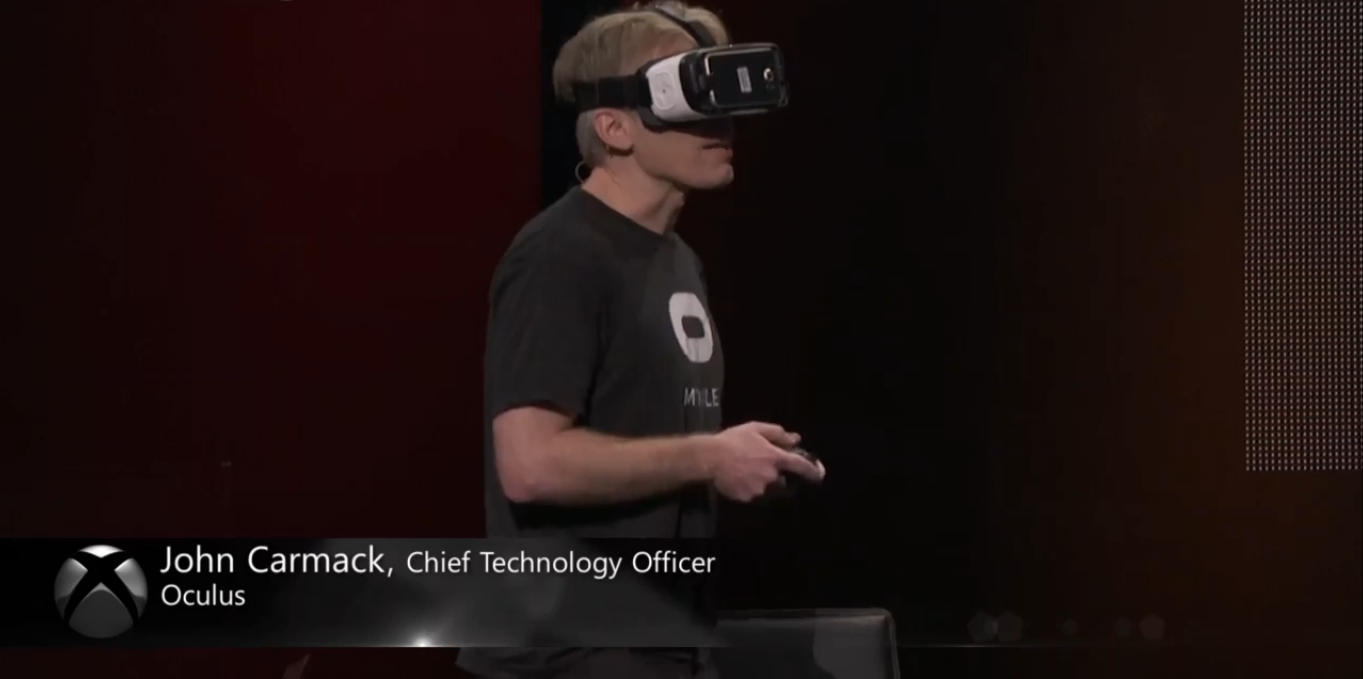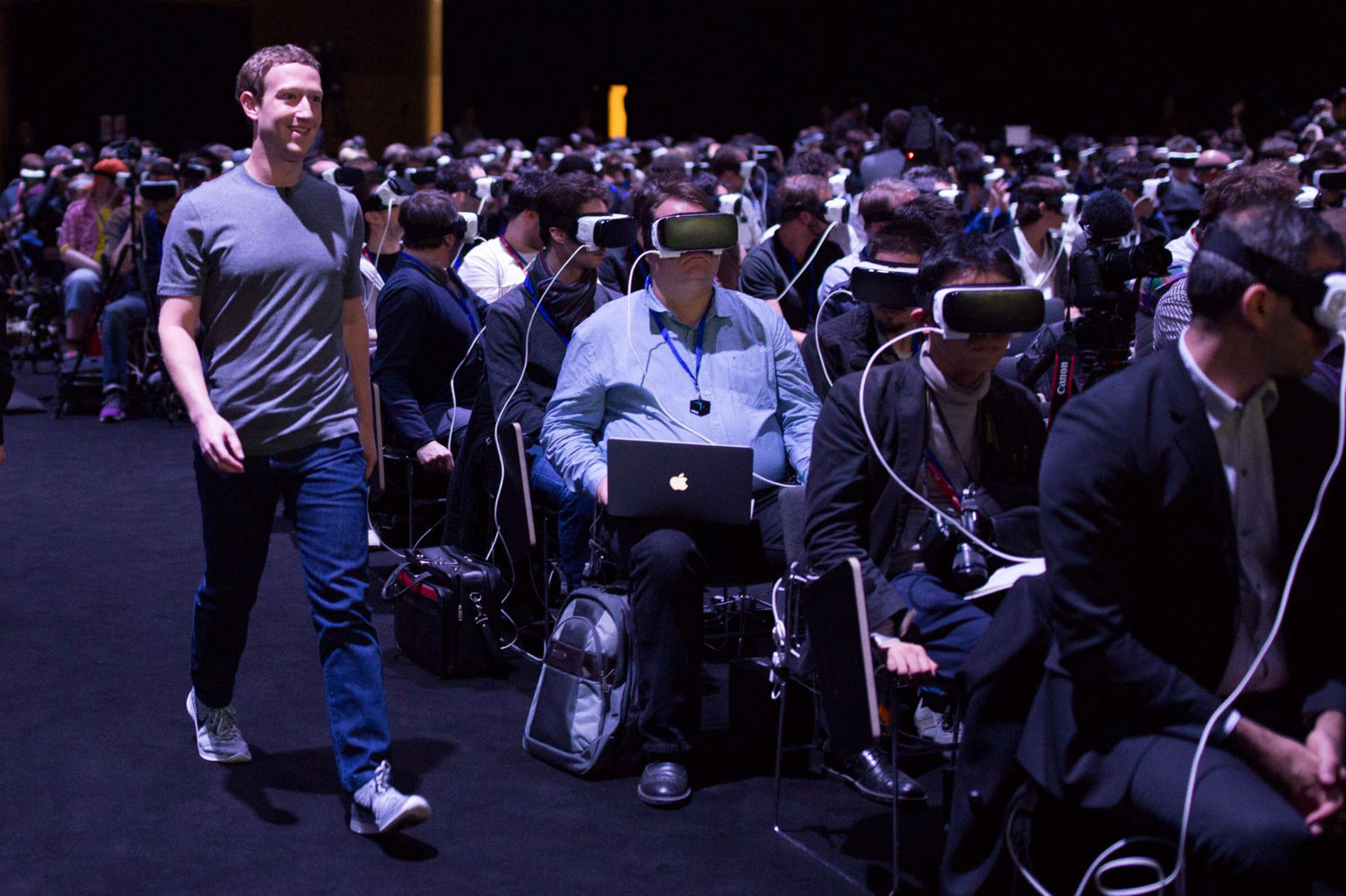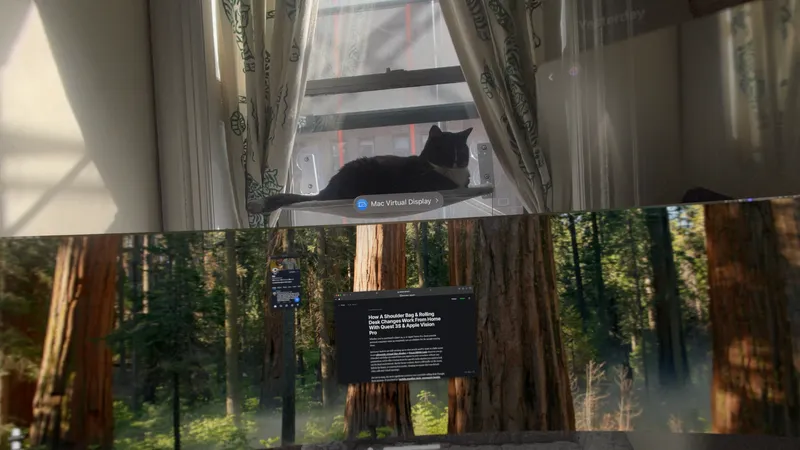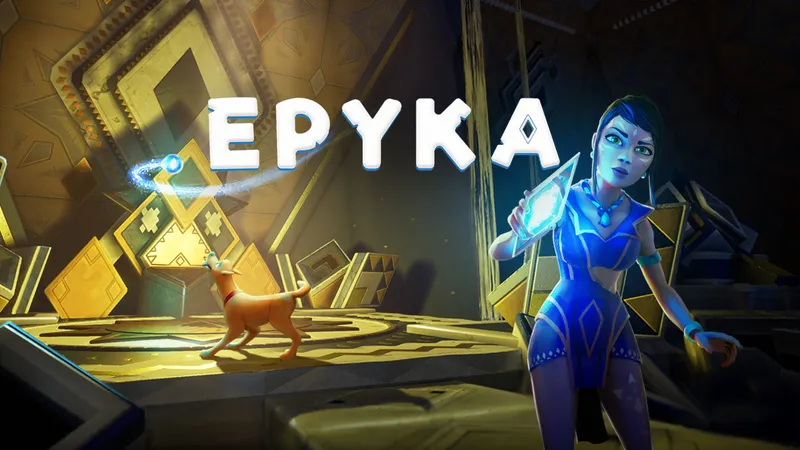The VR industry today is likely not exactly what Brendan Iribe envisioned it would be back in 2012. At that time, Oculus had ambitions of releasing an affordable VR headset in the near future that would allow players to step into the game.
The ultimate vision, though, was always a pair of sunglasses that would let you see objects and worlds that weren’t really there. How they actually would get there was never clear, but the revelation of two teams being formed for mobile and PC VR surprises us more than Brendan Iribe ceding his role as CEO to run the PC team.
A Tale Of Two Headsets
Over the course of the last four years, the VR industry has become bigger, more complex, and more competitive than most could have imagined. The Rift is not the only headset out there, nor is it the only category of headset. While both it and the HTC Vive push forward in the high-end PC space, the desire for tetherless, more affordable products has given birth to smartphone-based mobile headsets like the Oculus-powered Gear VR, made in partnership with Samsung.
This week Oculus announced a reshuffle that it thinks better reflects this state of the industry, revealing new PC and mobile VR teams. Iribe is going to lead the PC team, meaning he’s stepping down as Oculus CEO and the search for a new leader begins. Though it sounds dramatic, this seems to be more about redefining Oculus than it does restructuring it. Oculus has confirmed to UploadVR that major figureheads like Nate Mitchell, John Carmack, Michael Abrash, and Michael Antonov are still with the company either in the same roles or similar ones.
For Iribe, it is apparently a chance to get back to doing what he loves, “engineering and product development”, and perhaps the role he envisioned four years ago. For Oculus as a company, it is meant to “strengthen development and accelerate” the company’s roadmap.
Looking from the outside in, though, it’s a strangely timed move that seems at odds with the vision of a standalone headset that one day merges its PC and mobile efforts.
Old Dog, Old Tricks?
In the short term, the new Oculus doesn’t sound all that different from the old one. The company’s mobile section was well-defined and separated from the rest of its operations. It was headed up by Max Cohen, who still works on the mobile side under new leadership in Jon Thomason. Thomason himself brings a wealth of experience to the role, previously serving as VP of Engineering at mobile chip maker, Qualcomm.
That said, Oculus’ mobile efforts have been defined by its work with Samsung on Gear, thus far, and our only insight into what influence the company has on the hardware side usually comes from John Carmack’s Twitter account and Oculus Connect speeches. Of course, Google is rolling out Daydream across a variety of phone partners, nearly two years after the first Gear VR shipped. In getting acquired by Facebook, did Oculus get distracted and miss the opportunity for its software to power VR for a number of partners? In having flagship Samsung phones explode heading into the critical holiday season against Daydream, did Oculus lose its edge in mobile VR? Or perhaps this move signals a desire to branch out as a more independent mobile VR company? Though that creates other questions that we’ll get to in a second.
Looking further ahead, the move seems puzzling. One day, a standalone VR headset is going to rule the roost, not just at Oculus but in the entire industry. That’s what Facebook CEO Mark Zuckerberg talked about at Oculus Connect 3 in October before revealing the Santa Cruz prototype. He referred to standalone headsets as a third category that we’ll see grow over the course of the next few years. As this category is refined and improved, it will likely become the dominant VR device, removing the barriers to entry of PC VR and erasing the limitations of smartphone VR.
Pressure Mounting
Of course, we shouldn’t ignore Microsoft’s role in the mixed reality industry. Oculus partnered with Microsoft to bundle the Xbox One controller with every Rift, allowing the company to hit the market more quickly with the headset while the Oculus Touch controllers were finished. The partners also just rolled out a streaming solution so you can play Xbox games in a virtual theater on the Rift, and Carmack brought Microsoft-owned Minecraft to all Oculus headsets. At the same time, Microsoft is already shipping a standalone mixed reality computer — the HoloLens. It’s an expensive $3,000 developer kit right now, but its inside-out tracking technology solves one of the most fundamental problems facing VR — the ability for the headset to know its precise location in a room without any external sensors. Microsoft is using the solution to partner with manufacturers building a wide range of wired VR headsets, but a self-contained VR headset from Microsoft is a very real possibility since they’ve already solved many of the hardest problems with HoloLens.
The larger point being that the path to shipping VR products has not exactly been smooth for Facebook. Rift delays were the least of Zuckerberg’s concerns with Samsung phones exploding ,while both Google and Microsoft are putting a lot of pressure on Facebook. While Zuckerberg is keen to see Oculus blossom into its own platform to rival Android and Windows, Microsoft and Google aren’t slowing down. Being both first, and best, with a standalone product is critical to Facebook’s next steps, and they need speed to beat these rivals.
So, if you’re working toward a device that combines the best of mobile and PC VR, why create a split between the two? Obviously Oculus isn’t building a wall between them and they’ll communicate with each other, but you’d think the standalone dream would be better realized through tighter integration of these two teams, not separation. I don’t doubt an Oculus executive will happily tell me why I’m wrong (we asked Oculus about this and didn’t hear back), but at first glance this seems like a step away from an Oculus that will one day focus on a single headset. Maybe the division between these teams is recognition that it will take a while to achieve this merged solution?
It might sound hyperbolic to state that Oculus is drawing a line between PC and mobile and dividing them, but look at the exchange from a certain two industry legends below.
I believe that the future’s billion-user AR/VR devices will be evolutionary descendants of today’s PC VR, not today’s mobile VR or AR.
— Tim Sweeney (@TimSweeneyEpic) December 14, 2016
@TimSweeneyEpic How do you make the distinction? MIght make a fun gentleman’s decade bet.
— John Carmack (@ID_AA_Carmack) December 14, 2016
Oculus CTO John Carmack and and Epic Games Founder Tim Sweeney are already discussing which of these two sides will be more important to the future of VR hours after the announcement. If that’s not an indication of the strangeness of this divide and how it splits the VR industry, what is?
Return Of The King?
The biggest shake up is of course Iribe stepping down as CEO. Over the past four years he’s taken Rift from a crowdfunding success story to a Facebook-owned behemoth, and that’s no small feat. Now Oculus finds itself without a leader, or does it?
Mark Zuckerberg may be running his own company, but he’s formed a big part of Oculus’ identity in the two years since Facebook bought it. He’s spoken at the last two Connect conferences, taking on the important task of introducing Santa Cruz at the last show while also showing incredible new social features. He also represented VR at Samsung’s Mobile World Congress conference earlier this year, instead of someone from Oculus leadership. Oculus has also moved in to Facebook HQ at Menlo Park, under its watchful eye. Zuckerberg certainly seems more tightly connected to Oculus than he does any other of Facebook’s subsidiaries.
It’s easy to see why: VR might be the most important tool in keeping Facebook fresh, exciting and relevant in the future. The company’s impressive social VR demonstration at OC3 provided a glimpse into the future of its platform. It’s not made of walls and statuses, but panoramic videos, virtual avatars, and lifelike interactions. If Oculus really is to be the future of Facebook, does Mark Zuckerberg really want to entrust it to anyone other than himself?
Unless he’s been watching House of Cards, Zuckerberg probably won’t anoint himself CEO of Oculus, but expect the person who does get the top job to reflect those beliefs. It might not even be one individual alone, but perhaps a whole range of new executives brought in. We could start to see a leadership team that looks very different from the old one. Oculus holds the keys to the next iteration of Facebook, and that causes inevitable questions about how separate it will remain from its parent company going forward.
Ultimately this is a strange way to end yet another whirlwind year for Oculus. The arrival of consumer VR has been a bumpy road to say the least, but with this split we’re not sure it’s going to get much smoother in 2017.
Editor Ian Hamilton contributed to this analysis
































